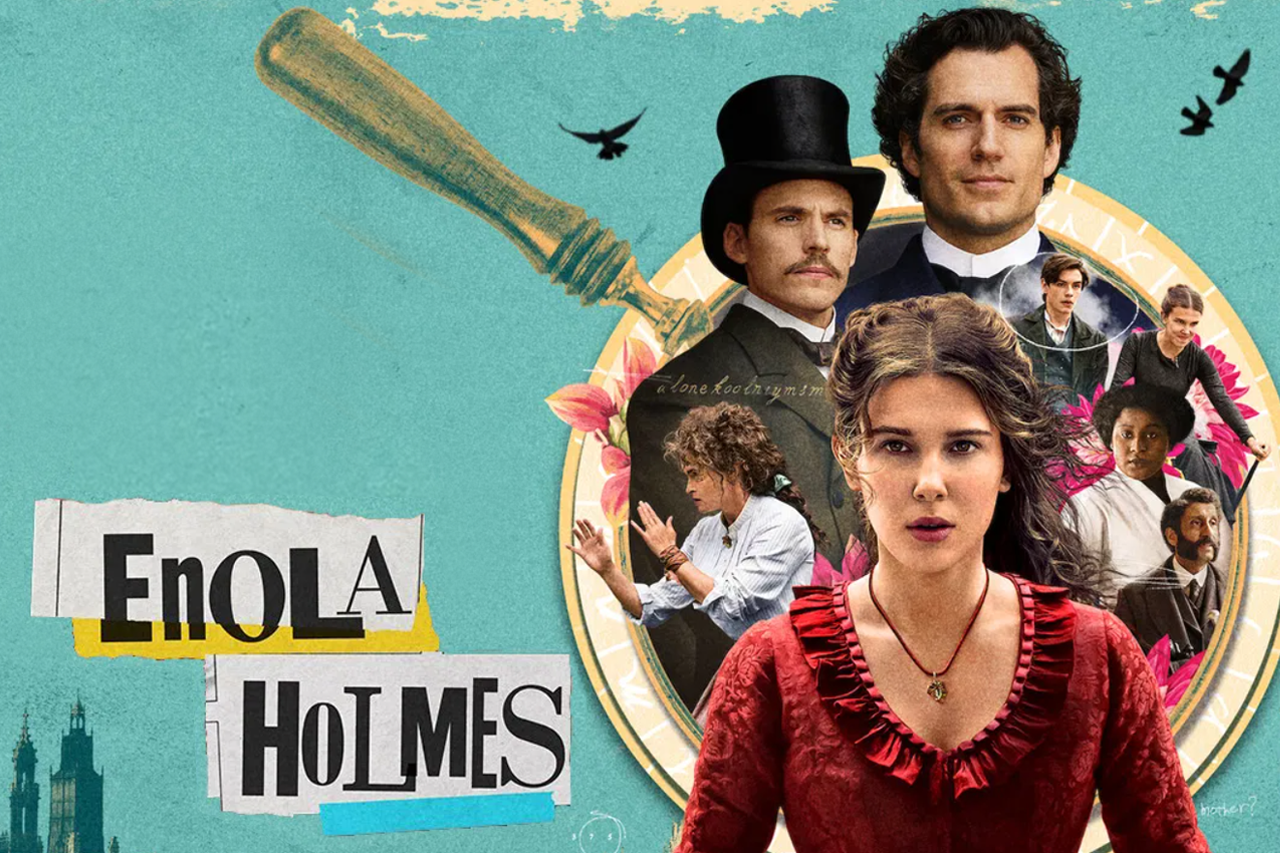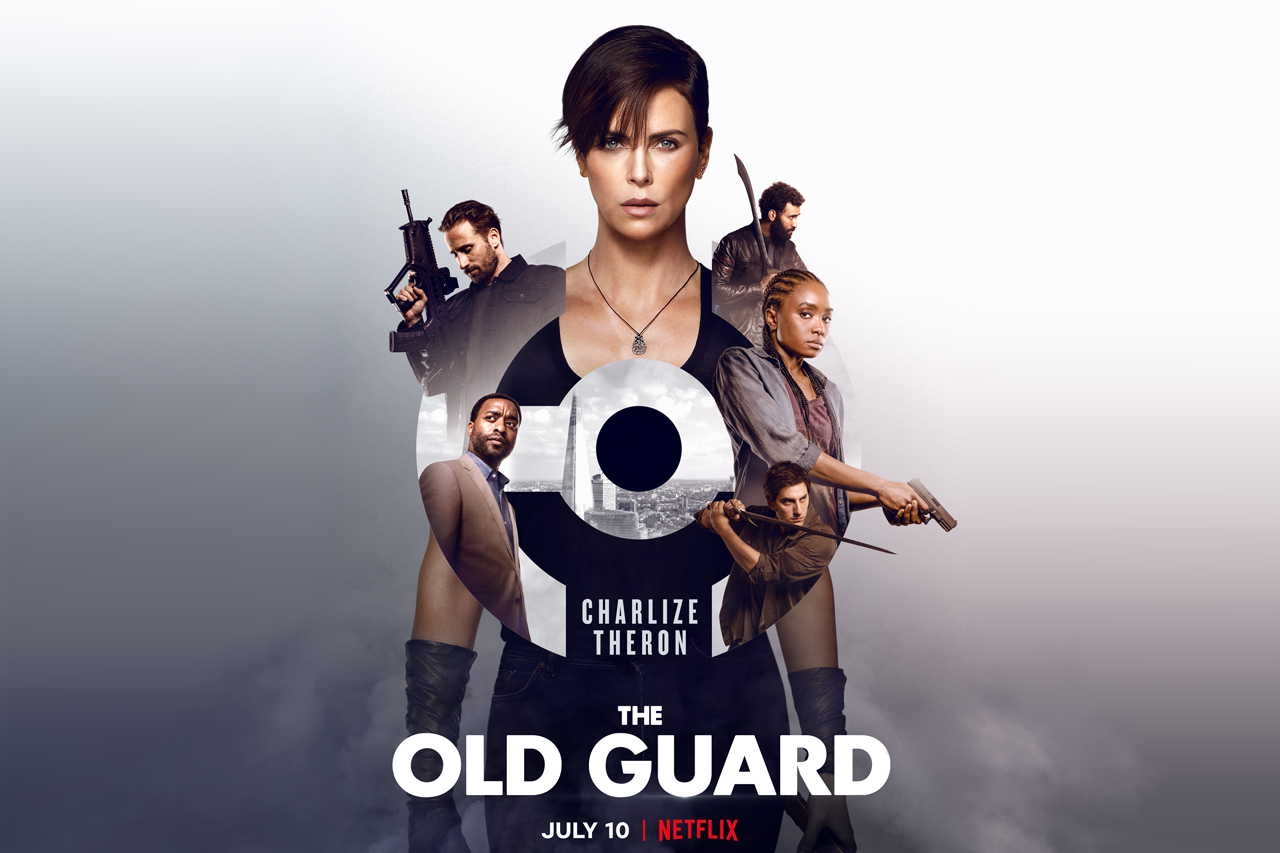Enola Holmes opens the doors of the mystery genre for a new audience and gives an unexpected twist to an established character that is now part of the world’s popular culture.
Plot
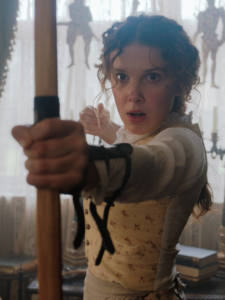
© Netflix
When Enola Holmes (played by Millie Bobby Brown), Sherlock‘s (Henry Cavill) teenage sister, finds out that her mother has gone missing, she decides to look for her in brand new territory. During her mission, she’ll become a super-sleuth, outwitting even her brother and uncovering a dangerous conspiracy that surrounds a young and mysterious Lord.
The movie is adapted from the first book in the series of the same name by Nancy Springer and produced by Netflix.
Review
We’ve gotten to know the talented young actress that plays the protagonist of this movie, Millie Bobby Brown, very well over the last few years after she made her debut in Stranger Things, certainly contributing to its success. But when we meet her as Enola Holmes, she’s a very different character from how we’re used to seeing her in the role of the stubborn Eleven.
Her name has very quickly become a certainty for any cinematographic production that wants to take advantage of her fame to attract viewers to any project she might be linked with, not undeservedly. Millie Bobby Brown does, in fact, an excellent job of giving plausibility and humanity to a character that might irk some of Arthur Conan Doyle‘s more purist fans.
Enola, a rebel of her times
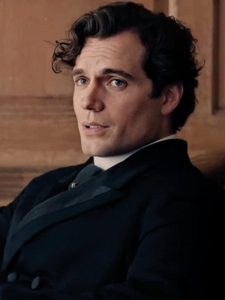
© Netflix
When we meet Enola at the beginning of the movie, she tells us that her name is an ananym for alone. This information is an apt start for a story that follows its protagonist as she faces many of the contemporary and personal challenges that a young woman might have had to deal with during the Victorian era.
Enola is brought up and educated by her mother (played by Helena Bonham Carter) in a small cottage away from the rest of the world and according to very modern values when considering its setting. When her mother suddenly goes missing, Enola will have to go against the will of her brothers – Sherlock and Mycroft Holmes (Sam Claflin, who also played Finnick in The Hunger Games) – to have a chance to find her.
The mystery that Enola will have to solve is the heart of the movie, together with her personal development and, without going into spoilers, she will have to face a conspiracy that she never could have imagined in her little slice of heaven away from the bustling city.
Expectations for a young lady
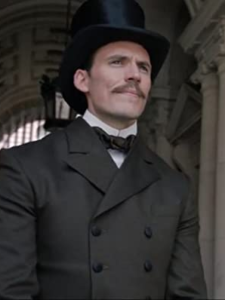
© Netflix
If on one hand, Sherlock tends to assume a neutral role in the story – a very different pace from his literary past -, Mycroft is actually framed as an antagonist for our young heroine.
Enola having to face the expectations that her contemporary society has for her means that these expectations are put on her by some of her family too. While her mother taught her the values of self-determination and self-sufficiency, Mycroft has a very different opinion and when he ends up being Enola’s guardian, he tries to push her into a more conventional and appropriate role for a young woman of the early 1900s.
But if Enola rebels against this specific expectation, there’s another expectation – a cinematic one – that not even a young revolutionary like her can escape.
The love story
During her trip to London in search of her mother, Enola finds herself entangled in a conspiracy that goes way beyond what she thought the reason for her mother’s disappearance could be. During her travels, Enola meets the young and mysterious Lord Viscount Tewkesbury (Louis Partridge), another young rebel fighting against the expectations of his family.
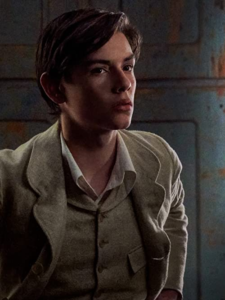
© Netflix
It is immediately obvious that the two have chemistry, a fact that will be confirmed when Enola decides to temporarily abandon the search for her mother to save the boy from a mysterious threat to his life.
Now, I am perfectly aware that I, a 27-year-old woman, am not exactly part of the target audience of this movie that is instead aimed at a much younger audience, but there’s something to be said about a story where the protagonist is an outsider of her time who shies from the expectations put upon her gender only to be trapped in that cinematographic convention that dictates that a strong and courageous heroine can only be humanised by a love story.
The relationship between the two is definitely adorable, with the coyness and the thrills of first love, but I personally found it a little forced and definitely rushed considering that a friendship would have been a lot more fitting for the story it was trying to tell.
The movement for universal suffrage
Without delving into too many details, one of the themes of the movie is that of universal suffrage.
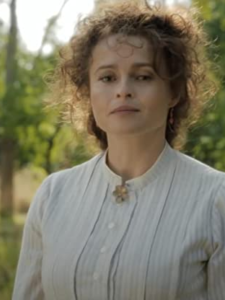
© Netflix
The concept is introduced by both Enola’s mother, whom she will find to be involved with the fight for women’s suffrage, and the young Viscount who is supposed to take his rightful place in the House of Lords and who expresses his intention to vote in favour of expanding voting rights to all the men of the United Kingdom.
While the cause is presented under a positive light when it comes to Tewkesbury’s point of view, when it comes to Enola’s mother, the methods of the women’s suffrage movement are instead put into question.
I don’t want to go into a long spiel about the history of the feminist movement for the women’s suffrage in the UK, because I’m not an expert and because Google is free, but I found myself disagreeing strongly with the way the fight for the cause was framed in the film. Sure enough, Enola never questions her mother’s integrity, who she keeps seeing, along with her teachings, as a role model for most of the movie, but the movement in its entirety is talked about in a way that comes across very much like a critique.
Considering that the movie is a very well-made story for young audiences and that Enola’s struggle for independence is seen as a worthy cause for most of the film, it is truly a shame that a historical event that could make Enola’s ability of self-determination even stronger is instead put under a negative light.
But I’ll give the movie this: Edith‘s (Susie Wokoma) speech to Sherlock about the privilege of not having to care about politics almost made up for this shortcoming. Almost.
Final thoughts
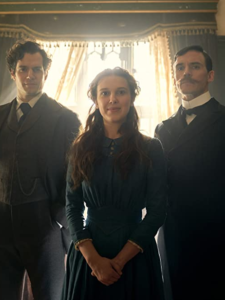
© Netflix
The movie is definitely made of very strong elements and a message that ultimately ends up being considerably positive.
I’m aware that, as someone outside the audience it was directed to, I can’t fully appreciate it. However, the story is entertaining and one of finding one’s own worth as a young woman in a world that would rather she didn’t (sure, we’re talking about Enola Holmes’ world, but it’s not such a far cry from our own too), without forgetting that a small monetary help to start with doesn’t exactly hurt.
I definitely agree with most of the positive reviews that were written on this movie and I am glad that it was filmed and that it gave some novelty to a character such as Sherlock Holmes that has been overused to exhaustion. I’m sure that Netflix has already considered the possibility of a sequel and that they might already be working on adapting another of the mysteries for the brilliant Enola to solve. I will definitely be there to watch more of it, together with a large audience that will be elated to welcome her back again.
